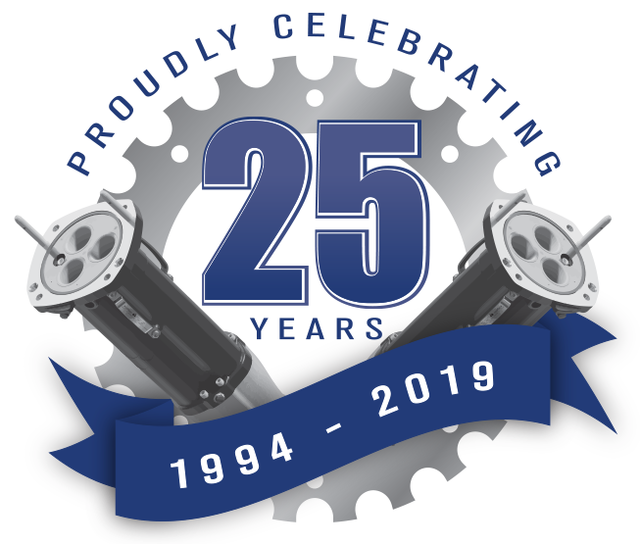SUSTAINABILITY
Vale and MIT: training sustainability into a mining giant
Following a series of disasters, Brazilian miner Vale has sought to tighten up its operations. JP Casey learns about the Mining Innovation in a New Environment scheme, which worked with experts from MIT and the startup sector to bring a collaborative, entrepreneurial approach to mining safety.


Image: Luis War / Shutterstock.com
Vale has endured a turbulent year and a half. The Brazilian company, once the world’s largest iron ore producer, has lost its position following a catastrophic tailings dam disaster last January, and the impacts on both the company’s reputation and production, and Brazilian mining law in general, have been significant.
Yet these responses are not exclusively punitive, as the scale of the disaster has inspired a positive response, one that has seen the company commit to improving its safety performance in the future. Key to this approach is the Mining Innovation in a New Environment (MINE) programme, which began last year with a number of partners: Imperial College London, startup backer The Bakery, Brazilian technical institute Senai Cimatec, and the Environmental Solutions Initiative at the Massachusetts Institute of Technology (MIT).
The project focuses on training and research, enabling 30 students to work with the project’s supporters to develop innovative solutions to production and safety concerns in the mining industry. With the first round of the programme already bearing fruit, with many graduating to full-time jobs in Vale operations, and a new startup spinning out of the research, there is hope that the project could help establish a culture of innovation and safety across industries, and drive lasting change in the mining sector.
More than half of the country’s coal mines are managed by pro-Russian separatist militia.Credit: DmyTo/Shutterstock.
More than half of the country’s coal mines are managed by pro-Russian separatist militia.
Credit: DmyTo/Shutterstock.
A focus on education
“30 students took part in the programme,” explains Suzanne Greene, programme manager of the MIT sustainable supply chains initiative. “We began with training; MIT lecturers taught core classes online and in person.
“We took a broad approach with key themes around clean energy technologies, tailings management, environmental impact assessment, supply chains, and sustainability more broadly.”
This broad approach, and the idea of expanding horizons, is integral to the programme, with the sheer range of backers and supporters offering a vast array of education opportunities. Students with degrees considered “relevant” to mining engineering were given the opportunity to work on real-world challenges faced by Vale, uniting academic education with practical experience. Greene notes that students ended the six-week programme by presenting what she likened to a “mini thesis”, which aimed to tackle a specific challenge for Vale related to sustainability, ensuring that this research and education was tailored for a specific real-world challenge.
“They need to show how leadership in sustainability looks in practice and walk the talk.”
By combining academic training with real-world challenges, the programme was also able to take advantage of a genuine interest from the students in aiding with sustainability initiatives.
“[Vale] also recognises that young people are passionate about the environment, sustainability, and climate change, so I think they felt like they need to step in and offer something to demonstrate they're actually quite committed to the topic,” explains Greene. “They need to show how leadership in sustainability looks in practice and walk the talk.
“That's where this programme came about, that they really want this to be a core focus and therefore should offer some professional education.”

AusProof is celebrating 25 years of business in Australia in 2019.
Image: Rodrigo S Coelho / Shutterstock.com
Commitment and collaboration
Considering the tragic background to this project, it is no surprise that Vale would invest so considerably in such a scheme. What stood out, however, is the genuine interest in all aspects of the project, from individual mini theses to the idea of education more broadly, shared by those at all levels of involvement with the scheme.
“I believe Vale is committed to sustainability,” says Greene, discussing Vale’s stake in the project. “Vale has had tragic accidents that cost them millions of dollars, so they absolutely have to deal with that. And on top of that, climate change is front and centre.
“At MIT it's really important for us that the companies that we collaborate with are truly committed to making changes.”
“Vale has had tragic accidents that cost them millions of dollars, so they absolutely have to deal with that.”
As with many similar projects in the energy industry, collaboration is an integral element of the scheme; yet while the companies involved come from a range of industries, their motivation and interest in the goals of the project are one and the same.
“One of our goals [at MIT] is to advance research and education on the topic of sustainability in the metals and minerals sector, so that's how this programme came about,” explains Greene. “We want to encourage the MIT community to expand their research on this topic because it's something we think is really important for the environment and society more broadly.”
The project’s backers certainly have an impressive breadth of expertise. Senai Cimatec, a higher education facility in Brazil that specialises in technological innovation, has invested more than $18m since 2011 in a variety of projects, from energy projects to robotics and automation, technologies with significant potential for use in the mining sector.
Additionally, The Bakery, which works to connect startups to potential backers, has worked primarily with pharmaceutical and construction companies, yet its focus on building relationships and agile business models is certainly applicable to a mining industry that is experiencing rapid change as environmental pressures grow increasingly intense.

Young minds and long-term benefits
Greene notes that this flexible, startup-like approach could help Vale improve its working habits to reflect this new world.
“Vale wants to attract the best and the brightest to come work for them, and part of reaching this goal is to invest in education for young people in Brazil around sustainability in the mining sector,” she says. "Not every company promotes a spirit of innovation within it. The MINE programme was designed to foster innovative thinking inside the company and develop that startup mentality.”
Perhaps the best example of the benefits of this approach is MinerAI, a startup that began life in the MINE programme, and has now grown to be a company in its own right, offering a data analytics platform for use in the mining industry. The Geospatial Analytics platform uses a number of new and emerging technologies, from big data-driven predictive modelling to machine learning solutions, to help optimise operations at mine sites, which can help maximise production and ensure safety.
“I feel like there's a movement afoot, and I feel like MIT can help.”
Seeing MinerAI accelerate from concept to company so quickly is also a strong example of the efficacy of this collaborative, entrepreneurially minded approach, and one that Greene thinks could reinforce what is already a strong commitment to the project by those involved.
“The immersion projects involved 30 students doing different projects, which ultimately affected a lot of people inside the company; many people saw what was going on and I think it had a ripple effect,” she says. “I think people were very inspired by the whole process.”
Hopefully, this inspiration will lead to the development of more programmes with tangible footprints in the world, and also inspire others to pursue projects in mining and safety who may not have considered such a career before. By bringing together experts from a range of sectors, there is more chance than ever for an innovative spark to take hold, and this is something Greene is optimistic about as MIT considers a second round of the scheme, to aid the mining industry in general.
“MIT is passionate about doing this programme again, and expanding it to work with other mining companies,” she says. “I feel like there's a movement afoot, and I feel like MIT can help.”

AusProof is celebrating 25 years of business in Australia in 2019.
